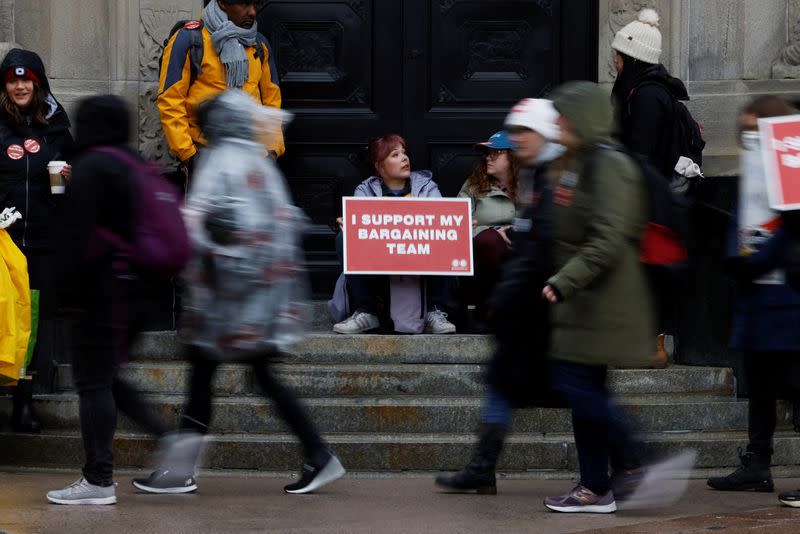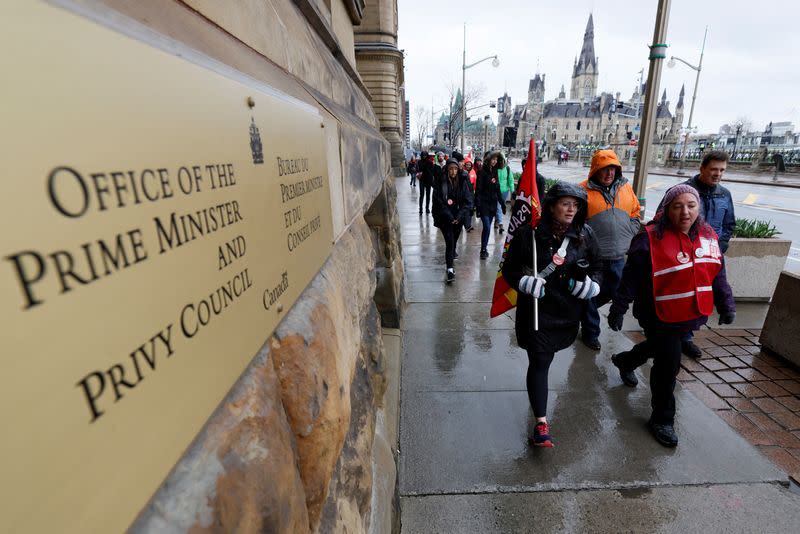Remote work clause in focus as Canada's public strike reaches Day 7
By Steve Scherer and Anna Mehler Paperny
OTTAWA (Reuters) - Canada's largest federal strike in years reached its seventh day on Tuesday as public and private unions watched to see if remote working would be built into the collective bargaining agreement.
For the 155,000 Public Service Alliance of Canada (PSAC) on strike, the main sticking point is wages.
However this is the first new contract to be negotiated since the COVID-19 pandemic hit, which forced millions to work remotely and has given the union an additional negotiating point.
In January the federal government mandated that workers return to the office at least two days a week by April 1, upsetting many who argued that they were more efficient working from home.
"A lot of other workers are watching to see what's going to happen because this is a fundamental issue in so many workplaces," said Katherine Nastovski, an assistant professor in work and labour studies at York University.
"If they do get the remote work language in the collective agreement, then others will be inspired to do the same."
PSAC, which names remote work as its second priority after wages, said on its website that it is time to look to the future "by enshrining remote work protections" into collective agreements.
While the union acknowledges that not every job can be done remotely, it says it wants to stick up for those that can.
Michael Wernick, once Canada's top bureaucrat and now a professor at the University of Ottawa, said it is an issue for both private and public sector workers.
If made a part of the new agreement, "the onus would be on the manager to say 'No', and the employee could launch a grievance and these issues would enter the world of labour relations," Wernick said. "Management doesn't want to go there."
On Tuesday the Treasury Board said remote work remained a sticking point.
It said in a statement to Reuters that it "cannot agree" enshrining remote work into collective agreements because it would restrict "managers' ability to manage their teams", undermining services and team-building.
"If it's in the collective agreement, they (the employer) are forced to talk to us. It's not something they can unilaterally take away, which they can do right now," said JP Surette, a communications officer for the Correctional Service of Canada, while picketing outside the Treasury Board office on Friday.
Ruth Lau-MacDonald, senior policy adviser at Fisheries and Oceans Canada, is on strike too. She said she works more efficiently from home than she did in the office, and now half her team is on the West Coast, so they would not be in the Ottawa area office anyway.
"What's the point of going in... when everyone on your team is in Vancouver?" she said. "How are we measuring success? Are we measuring it by the work that you perform and the quality of the work, or the fact that you show up for your 7 1/2-hour shift?"
(Reporting by Anna Mehler Paperny and Steve Scherer; editing by Jason Neely)


